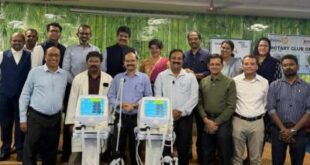Reproductive medicine is continually advancing to enhance its success rates. Since the first successful IVF procedure in 1978, which involved fertilizing the egg with sperm in vitro and transferring the embryo to the uterus, millions of parents have welcomed babies through this technology. Recent technical advancements have significantly increased the chances of conception.
Traditionally, doctors selected embryos based on their appearance. However, even top-rated embryos can have chromosomal abnormalities, leading to implantation failures. Pre-implantation genetic testing for Aneuploidies (PGT -A) screens embryos to ensure they are developmentally and chromosomally normal. This process has been shown to increase the chances of successful implantation and reduce miscarriage rates by approximately 50%. PGT-Ais particularly recommended for couples experiencing multiple IVF/ICSI failures and women with recurrent miscarriages.
Pre-implantation Genetic testing for Structural rearrangements – All 23 pairs of chromosomes have structure and arrangement. Any mismatch in the structure of chromosomes (due to translocation, inversion, etc) can lead to significant genetic conditions or failure of pregnancy. PGT-SR screens for any such abnormality in couples who may have increased risk for such a condition.
Pre-implantation Genetic testing for Monogenic/Single-gene defects (PGT-M) is another significant advancement. It helps couples with genetic disorders like Thalassemia or Spinal Muscular Atrophy by screening embryos to identify those without genetic conditions. This ensures that only healthy embryos are transferred, reducing the risk of passing on genetic diseases to their children.
For women with conditions such as thrombosis or cancer, traditional IVF/ICSI may not be safe due to the hormonal treatments involved. In Vitro Maturation (IVM) offers a solution by using minimal or no hormones. Immature eggs are retrieved and matured in the lab before being transferred. This procedure eliminates the risks associated with IVF hormone treatments and provides a safer alternative for these patients.
Freezing eggs and embryos has become a common option in infertility treatments. Women who wish to delay pregnancy due to advancing age or other reasons can freeze their eggs to preserve their fertility. This option is also beneficial for women diagnosed with cancer, as treatments can lead to infertility. Data indicates that egg freezing can increase the chances of a successful pregnancy later, with a success rate of up to 70% when eggs are used within a decade of freezing.
The Endometrial Receptivity Array (ERA) is a significant advancement in reproductive medicine, particularly for cases of previous failed IVF cycles despite the use of good quality embryos. ERA helps identify abnormalities in uterine receptivity, enabling personalized embryo transfer planning. This tailored approach aims to enhance the success rates of IVF by ensuring that embryos are transferred during the most receptive period of the endometrial cycle.
Despite these advancements, early fertility counselling is crucial. Women are born with a finite number of eggs, which decrease in quantity and quality with age. By age 35, a woman’s fertility potential significantly declines, and by age 40, the chance of natural conception drops to about 5% per cycle.
9M Fertility by Ankura Hospitals provides cutting-edge treatments such as IVF, IVM, PGT-A, PGT-SR, PGT-M and fertility preservation. The centre offers effective treatment programs for various conditions, including repeated miscarriages, ovulatory dysfunctions, endometriosis, and immunological infertility. Experts at 9M Fertility work closely with couples to deliver customized assisted fertility treatments tailored to each patient’s needs.
With state-of-the-art facilities, a team of highly qualified and experienced doctors, and a compassionate management staff, 9M Fertility offers comprehensive and personalized fertility services. We are proud to announce that we have given a consistent 80% success rate in the past 1 year and comparison to worldwide success rates of 40-50%.
Their dedication helps individuals and couples achieve their dream of parenthood, contributing to a success rate that exceeds the global average for IVF treatments.
By Dr K Sreevani Kotha
MBBS, MS (OBG), FRM, FMAS, FIGI (Germany)
Director & HOD, 9M Fertility by Ankura Hospital. GACHIBOWLI
 Newspatrolling.com News cum Content Syndication Portal Online
Newspatrolling.com News cum Content Syndication Portal Online






